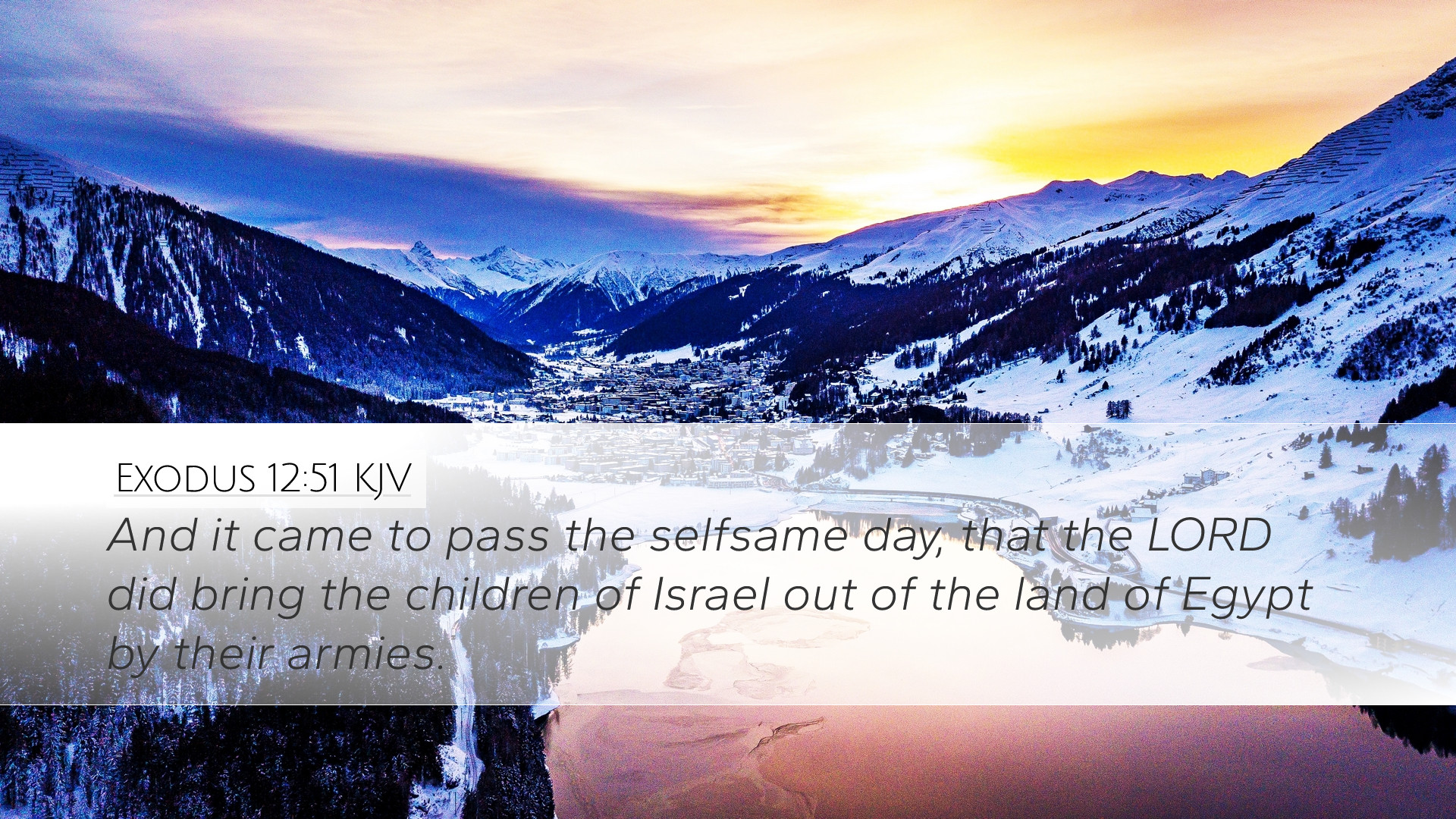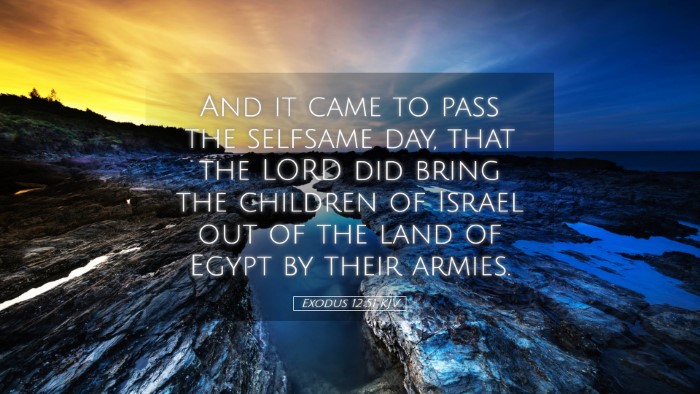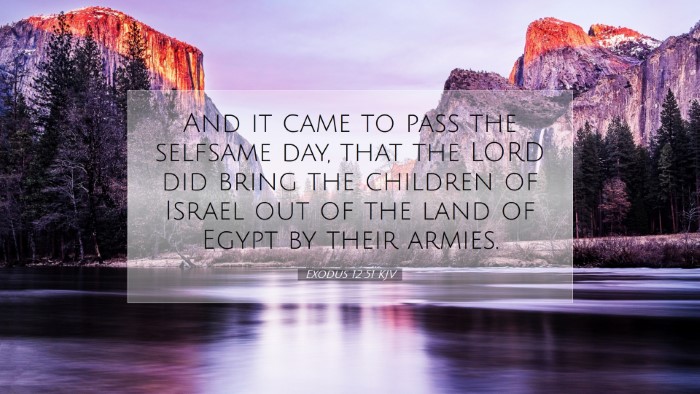Commentary on Exodus 12:51
Exodus 12:51 states: “And it came to pass the selfsame day, that the Lord did bring the children of Israel out of the land of Egypt by their armies.” This verse serves as a pivotal moment in biblical history, marking the dramatic transition of the Israelites from bondage to freedom, underscoring themes of divine deliverance and faithfulness.
Summary of the Exodus
The Exodus narrative is foundational to Jewish identity and has extensive theological implications for Christians. This verse encapsulates the culmination of God’s promises and the fulfillment of his plan to liberate Israel from Egyptian oppression.
Divine Timing
According to Matthew Henry, the phrase "the selfsame day" highlights God's perfect timing in delivering His people. God's actions are not arbitrary but are executed according to His sovereign plan. This moment is deliberately chosen, not just as a historical event but as a representation of God's faithfulness to His promises to Abraham, Isaac, and Jacob.
Deliverance from Oppression
Adam Clarke reflects on the significance of liberation that comes through God’s initiative. He emphasizes that the Israelites were not delivered as a result of their efforts or merits but solely through God's power and grace. Clarke suggests that this deliverance symbolizes the spiritual freedom provided through Christ in the New Testament, making it a dual-focus of liberation—both physical and spiritual.
The Role of God’s Armies
The term "by their armies" indicates a structured movement and organization under divine command. Albert Barnes points out that God acts as both the commander and protector of Israel. The idea of 'armies' suggests that this is not just a haphazard escape but a divinely orchestrated liberation, indicating God’s mighty hand working to secure their journey toward the Promised Land.
The Theological Implications
- Historical Context: The context of Exodus reveals the oppression faced by Israel and God's promise to Moses to free them. This act of liberation forms a testament to God's covenantal relationship with His people.
- This verse serves as a turning point: From slavery in Egypt to their journey of faith, indicating that redemption involves both leaving behind old ways and embracing a new identity in God.
Covenantal Faithfulness
Both Henry and Barnes emphasize God’s unwavering commitment to His covenant. This moment signals God's faithfulness not only to Israel but demonstrates God’s larger plan for humanity’s redemption through prophetic foreshadowing of Jesus Christ. The abrupt and powerful delivery vividly illustrates God’s active involvement in history and the importance of trusting God’s promises.
Reflection for Today’s Believers
For pastors, students, theologians, and Bible scholars, this verse invites contemplation on the nature of God's deliverance in both the past and present. It encourages believers to reflect upon their own experiences of spiritual liberation and the recognition of God's timing in their lives. The significance of this event can inspire hope and assurance that God remains active in guiding His people toward freedom from sin and spiritual oppression.
Application and Encouragement
- Faith in God’s Promises: Exodus 12:51 reassures believers of God's unwavering commitment to fulfill His promises. It encourages individuals to place their trust in God, knowing that He is faithful to deliver.
- Commemoration of Deliverance: Like the Israelites, Christians are called to remember their spiritual deliverance. The practice of remembrance can foster gratitude and deepen one's relationship with God.
- Moving Forward: The journey of the Israelites wasn't just about leaving Egypt; it was about moving toward something new. Believers are invited to step away from past bondages and embrace the new life that God offers.
Conclusion
Exodus 12:51 serves as a profound affirmation of God's continual work in the lives of His people. By synthesizing insights from public domain commentaries, we appreciate the complexity of this moment in the Exodus story. It stands not only as a historical account but also as a timeless reminder of God’s promise of deliverance, the importance of faith, and the call to live in the light of that deliverance today.


